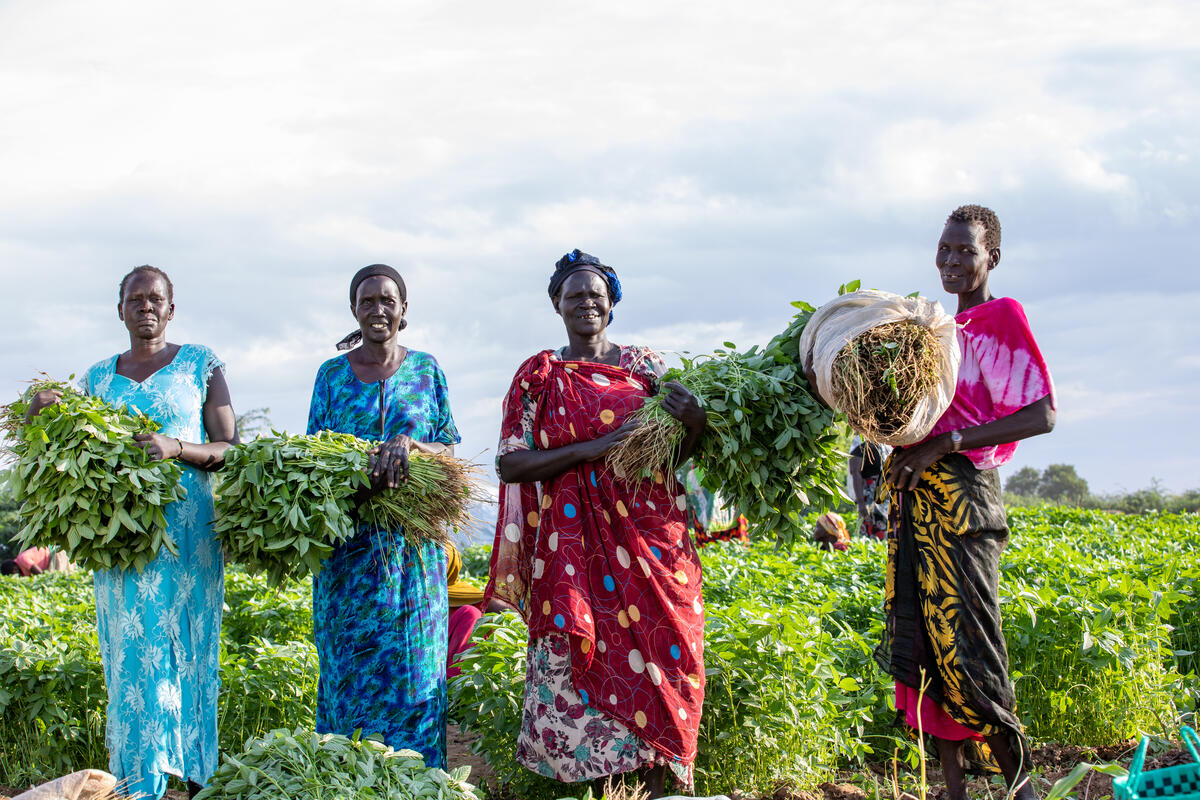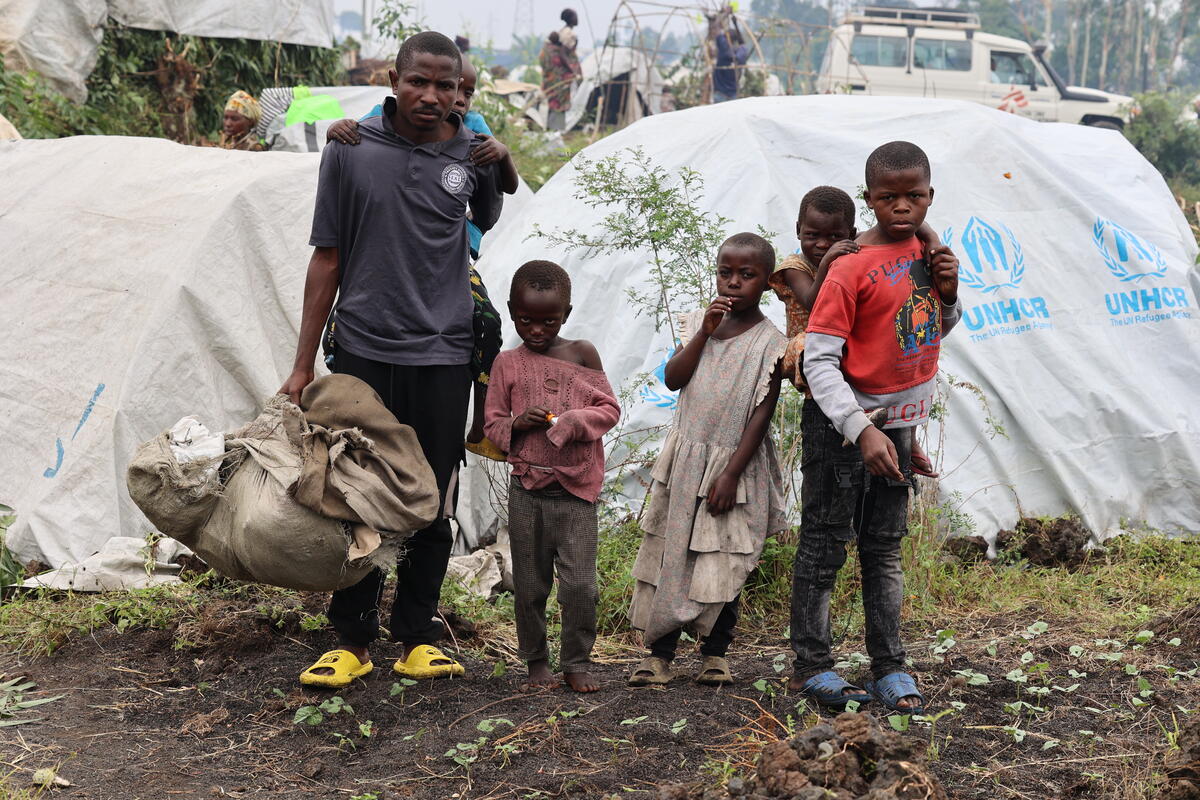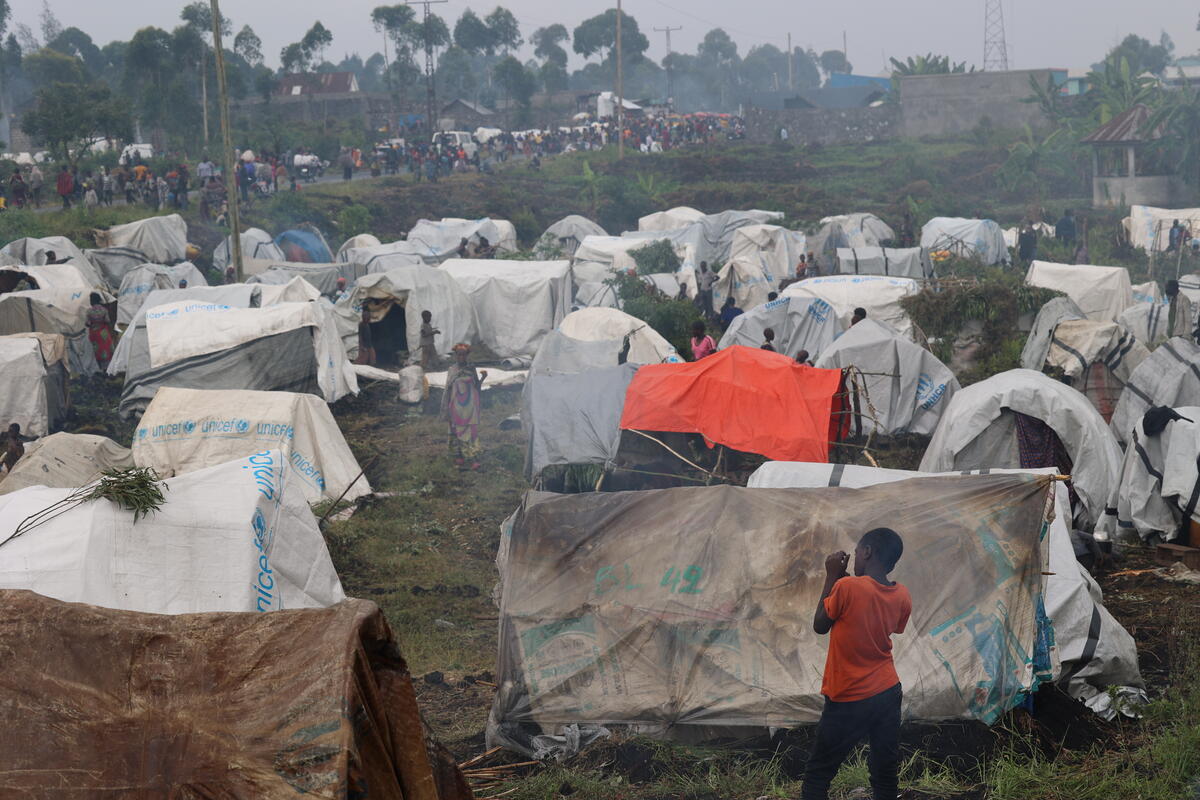Congolese refugee sisters make dolls to help forget the past
Congolese refugee sisters make dolls to help forget the past

KIZIBA REFUGEE CAMP, Rwanda, November 21 (UNHCR) - Leocadie Wita Kasanganjo has an unusual pastime, one that keeps her busy, brings in a bit of money and helps her to forget about her painful past in the Democratic Republic of the Congo (DRC).
The 35-year-old Congolese refugee and her sister, Leonidas, make and sell colourful dolls inspired by typical scenes from rural life in Rwanda's Western Province, which surrounds Kiziba Refugee Camp and its population of almost 18,000 refugees from eastern provinces of the DRC.
Kakuze and Agnes, both 20 centimetres tall, are their latest creations. Kakuze carries a basket of beans on her head and a baby on her back, while Agnes bears a bundle of firewood. "It takes me from seven in the morning until three in the afternoon to make one doll," said Leocadie, who must sew the body, stitch the clothes, cut the accessories, paint the eyes and glue on the facial features.
Attention is paid to the smallest details, from a small axe made out of a sliver of wood and tin from a can to the eyes and mouth of the baby on Kakuze's back. "Part of the material - such as the glue or the pieces of cloth for the dresses - can only be bought in [the Rwandan capital] Kigali, but most items can be found in the camp's surroundings," Leocadie explained.
She and her sister have been making the dolls together for more than a year. "With the money that I receive from making the dolls, I can buy additional food to supplement the regular rations given to us in the camp by the [UN] World Food Programme," said Leocadie, who smiled when she told visitors about plans to buy Sambaza, tasty small fish caught in nearby Lake Kivu, with some of her earnings. Materials cost almost nothing and each doll sells for between US$3 and US$6.
Having tasted success, the sisters want to build on it, but their options are limited. "I could produce and sell many more dolls if I had more customers. There are none in the camp and I depend on people visiting from outside," Leocadie noted.
Kiziba, located on a hilltop near the lakeside town of Kibuye, is well off the beaten track. The isolation is good for security, but it is a deterrent for potential clients. UNHCR's community services assistant in Kibuye, Charlotte Gwizabera, sells a few of the dolls in Kibuye and Kigali, but marketing is time-consuming and difficult.
Leocadie would like to earn more, but money is not everything to her. "Making the dolls keeps me busy and it is a way to forget about the difficulties of my life in the DRC, if only for just a brief moment," she explained. The native of DRC's South Kivu province arrived at Kibiza early last year with her two daughters - now aged seven and 15 - after years of internal displacement. Like so many of her compatriots in eastern DRC, Leocadie had a story of suffering and loss to tell.
Born in the village of Wanyenga, she and her husband fled their home in 1998 when war broke out between forces loyal to the late President Laurent Kabila and the rebel Rally for Congolese Democracy, mainly composed of Tutsis living in the east of the country. Both sides were backed by regional powers and the brutal five-year conflict came to be dubbed as the African World War.
"Rebels used to come to our house, loot, and humiliate me and my family," Leocadie recalled. She was separated from her husband during their flight and has heard no news from him in the past eight years. She also lost trace of her 17 year-old son before reaching sanctuary in Rwanda.
A peace accord was signed in 2002 and hopes that DRC's nightmare might be coming to an end rose ahead of the holding this year of a landmark democratic presidential election. Joseph Kabila, son of the late president of the same surname, has been declared the winner, but tensions remain.
Leocadie said she was still pondering her options. "At the moment we are safe here in the refugee camp and I still do not know whether or not I will return to Congo," she said. Meantime, she has ambitious plans to create a collection of dolls based on scenes within the camp. But first she has to finish a Christmas order of 16 dolls placed by a UNHCR employee. The money should ensure a very Merry Christmas.
By Tim Maurer in Kiziba Refugee Camp, Rwanda








